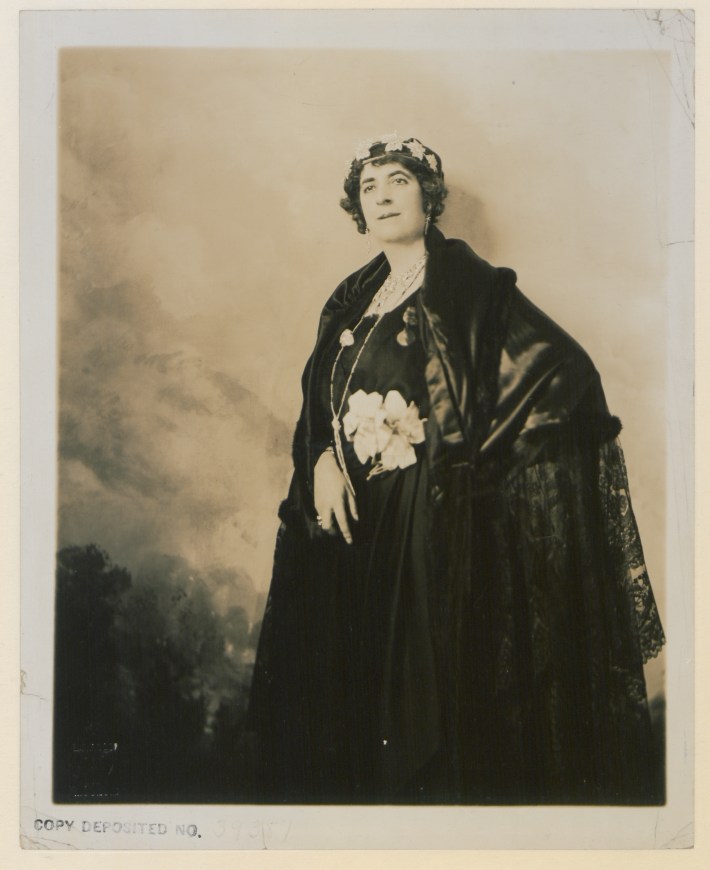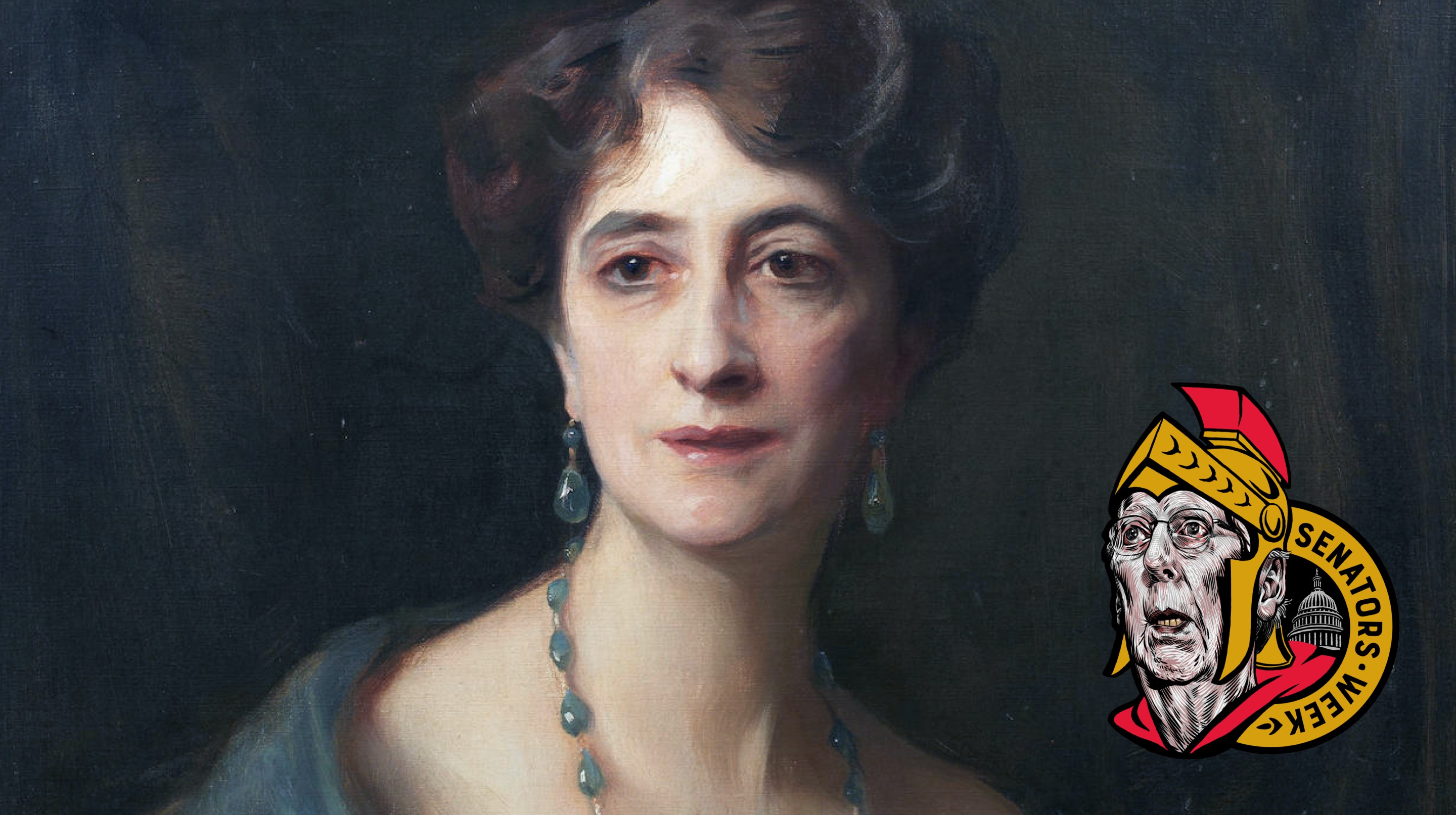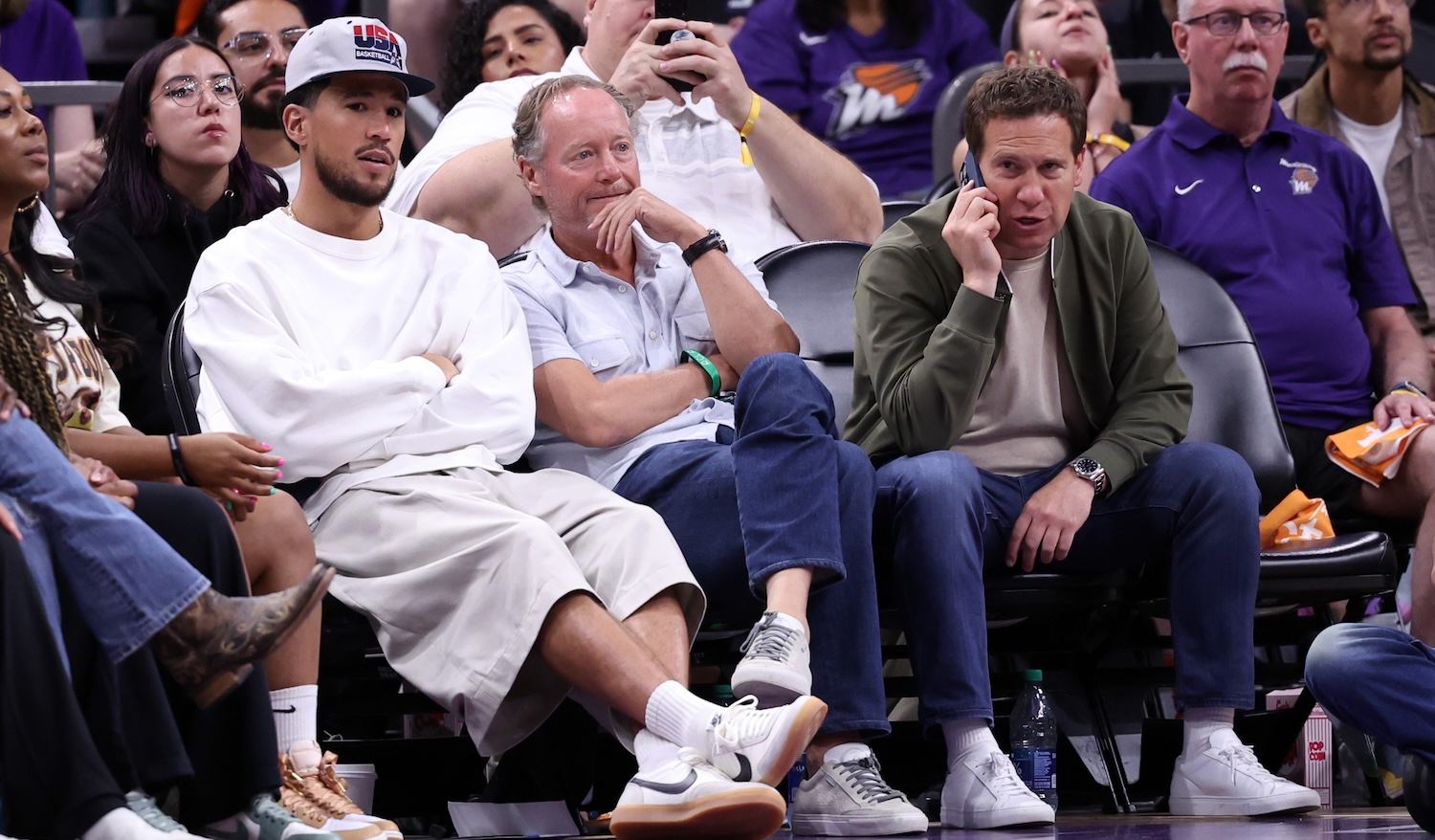This week, Defector has chosen to curate a collection of writing inspired by two entities that have had an indelible effect on North America: the upper house of the United States Congress and Eugene Melnyk’s pro hockey team. This is Senators Week.
At a dinner party one night, when she was 27 years old, Evelyn Moreton met a British Army officer named Julian Byng, the man she would marry. “So there it was, and we fell in love at first sight,” she wrote in her memoir, Up the Stream of Time. Despite that first, fierce jolt of knowing, the romance stalled unbearably. Julian puzzled Evelyn. He was infuriating, really. Each day of the week meant some new disposition of his. "On Monday he would be in his most enchanting mood; Tuesday he would treat me as a pal and a man; Wednesday he would hardly remember that I existed; Thursday he would be icily polite; Friday he would thaw a little and by Saturday be back in Monday's delightful mood."
Twice—twice!—before leaving to fight in the South African War, indecipherable Julian set off riding to Evelyn's family's country estate, with plans to confess his love for her and ask her to wait for him until he returned. Then, both times, it occurred to him that he might die in battle and in doing so condemn Evelyn to a sad, eternal betrothal. So, both times, Julian turned back the other way.
He went off to war right at the turn of the 20th century—"vanished into space," Evelyn called it—leaving their future unresolved, which she grieved as its own unhappy resolution. But then he began writing to her, each letter growing slowly more affectionate, until finally, from the man who'd turned back twice, came an impatient proposal of marriage, asking her to cable the reply. By telegram, Evelyn sent an equally impatient response: "Yes please return immediately." The long-distance engagement was made in a downright speedy 18 hours. He kept the cable on his desk for the rest of his life.
Lady Byng and her husband travelled widely in 33 years of marriage: Paris for their honeymoon, India ("pretty dreary" but for the company of a pet mongoose called Monny), the Nile Valley, cloudless Rio de Janeiro, Los Angeles, the Belgian coast. But it was Canada, where Lord Byng served a term as governor general, the British Crown's representative to Canada, that stole Lady Byng's heart. She took keen interest in Canadian flora and the varied landscapes. In Ottawa, the couple were adored by the company of local dignitaries they kept. Her real legacy there, though, might be that her name is on hockey’s least-coveted prize: the Lady Byng Memorial Trophy, for “the player adjudged to have exhibited the best type of sportsmanship and gentlemanly conduct combined with a high standard of playing ability.” The reigning winner is Colorado’s Nathan MacKinnon, who seems unlikely to win it again. In a game against Arizona in late March, he yanked an opponent’s helmet off during a fight and flung it back to him like it was a bowling ball.
Don't be so sure MacKinnon's on-ice behavior had Lady Byng rolling in her grave. For someone best known for prizing gentlemanly conduct, she had a surprisingly arch sense of humor. Maybe that was her way of coping with a lonely childhood or with the upheaval of a life lived through two world wars. This was a woman who heard planes overhead and screaming sirens in Essex during the Blitz, and mused that at her advanced age, "a bomb would have been a good solution." If the trophy she gifted to NHL president Frank Calder in 1925 to help "clean up hockey" has become a league-wide joke, know that Lady Byng, an original Sens Sicko, would be the first one laughing.
Canadian winters were beautiful, she admitted, but Evelyn Byng didn't take easily to them. She didn't like the way they seemed to tease her with "false starts in the thaws." The couple had moved to Ottawa in the summer of 1921 when Winston Churchill appointed Julian governor general. Julian was excited for the chance to reunite with the men he'd commanded in the Canadian Corps in World War I, who'd called themselves the "Byng Boys." She looked forward to it, too, as an opportunity to feel useful for once in their marriage. "The wife of a Governor-General can do much to make or mar the regime—just as a gubernatorial staff can do the same," she wrote.
Whether she made or marred the regime was up for debate among the gubernatorial staff. "Lady Byng was not always easy to get along with," wrote Henry Willis-O'Connor in Inside Government House, his dishy-as-hell memoir of life as an aide to six different governors general. "She had a quick and violent temper and, when not officially engaged, was apt to give rein to it." (Take comfort, Nathan MacKinnon, for you are not alone.) "At such times, she seemed to find relief in a burst of startling profanity."

Thunderstorms terrified her, Willis-O'Connor remembered. So did cars. In the summers, she was known to make complicated travel plans on a whim. Willis-O'Connor retold, in his brilliantly snarky way, the story of a camping trip Lady Byng took to a remote lake in Ontario: "She wanted to rest and live the simple life. So she took only one cook, one assistant cook, one footman, two housemaids and her own personal maid, besides a couple of aides. To add to the simplicity, she asked for all her complicated and favourite sauces to accompany her favourite and most complicated dishes."
Fortunately for the staff, her Canadian winters were spent mostly in Ottawa and indoors. While Parliament was in session, the Byngs entertained often at Rideau Hall, hosting "small" dinners for a dozen guests at a time. If she had a weather-unrelated complaint about wintertime in the city, it was that to her fine British sensibilities, Canada was wanting for a real theater scene. She lamented the "grievous" lack of good plays. The best English touring companies, she explained, never drew big enough crowds in Ottawa to justify their visiting.
In the absence of high art, she turned to the degenerate institution that did draw crowds in Ottawa: "If plays were denied me, there was ice hockey, and woe betide any member of the staff who tried to make engagements for a Saturday night during the hockey season, when I went regularly to 'root' for the 'Senators,'" she wrote.
Those Senators were not the plucky, bottom-dwelling havoc wreakers they are now. (Nor were they really the same franchise; the original Senators moved to St. Louis then folded.) Lady Byng's adopted team was a contending powerhouse, winners of back-to-back Stanley Cups in the two years before the Byngs arrived in town. The two of them had prime seats, in the fancy vice-regal box, to much-hyped matchups against the likes of the Montreal Canadiens, Hamilton Tigers, and Victoria Cougars.
In Up the Stream of Time, Lady Byng remembered some guys responsible for the "many happy evenings" she and her husband spent watching the Senators. The player she liked best was Frank Nighbor, a center whose elegant, singular stick checks were the stuff of legends across Canada. Fellow players tried hard, but in vain, to imitate his moves. Nighbor's style was to skate fast and low to the ground, where he could bend, lay his stick practically flat, and sweep the puck away from even the most gifted stickhandlers in one efficient motion. This, the Vancouver Province wrote, "seemed to completely non-plus the visitors and frequently they would stare at him in amazement as he stole the rubber off the end of their sticks when they were apparently off for a clear breakaway.”
One competitor likened Nighbor's precision to a cobra's; another called him a magician. "Nighbor's checking ability even became a psychological hazard," remembered different NHL award namesake Jack Adams. "An opposing player would stickhandle past him but then he'd tighten up in apprehension of the hook-check, and the puck would roll off his stick." In short, Nighbor could disrupt a play without laying a finger on anyone—skilled, gentlemanly hockey. (You can watch Nighbor demonstrate his hook check for some Canadian schoolchildren at around the 9:30 mark in this 1940 documentary.)
As much as Lady Byng enjoyed the game, she never lost her foreigner's sense of bafflement at the hold hockey had on Canadians. (As for her own hockey skills, "I never got beyond the stage of pushing a chair round the rink...") How, she wondered, was this the central venue for Canadian passions? Why did they never cheer so loudly at military parades? Also, what was up with the spectators chucking trash and coins at the referees? It was this somewhat muddled appreciation for the culture of the sport that led her to get in touch with Frank Calder and offer him some assistance. Her letter to Calder was reprinted in the Ottawa Citizen in March of 1925:
Feeling a great desire to help your effort to "clean up hockey" and eliminate the needless rough play that at present is a threat to the national game, and also to leave a tangible record of the enjoyment I personally have had from the game during our sojourn in Canada, I am writing to ask you if you will let me offer a challenge cup for the man on any team in the National Hockey League, who, while being thoroughly effective, is also a thoroughly clean player.I am convinced that the public desires good sport, not the injuring of players, and if, by donating this challenge cup, I can in any way help towards this end, it will give me a great deal of pleasure.SIGNED) Evelyn Byng of Vimy
There wasn't a more obvious inaugural recipient for the challenge cup than Nighbor. Later that month, Lady Byng presented the trophy to Nighbor before an exhibition match in Ottawa. Nighbor won it again the following year, too.
The Senators would go on to win another Stanley Cup in 1927, but the Byngs weren't around to see it; Julian's term ended in 1926. All in all, it had gone well, except for the time he started the greatest constitutional crisis in Canadian history by refusing to dissolve Parliament when the Prime Minister asked him to, which would lead Canada to affirm its legislative independence and more narrowly define the role of governor general in the 1931 Statute of Westminster. But mostly well. Evelyn was sad to leave "that city of towers and spires, trees and noble rivers," though she did yearn for her own home and to be back in her garden and for some more freedom. In Up the Stream of Time, she wrote, "I loved our years at Rideau Hall, though I am not the type which likes having its wings clipped by inhibitions, as clipped they always are in high positions."
Back at their estate in Essex, wings unclipped, the Byngs kept up with their hockey team from afar. They reportedly asked a friend in Ottawa to send updates on the Cup run. "Both of us are delighted at the splendid success of the Ottawa team. Please give them our warmest congratulations," they said in a message to the Senators afterward. A story in the Ottawa Journal reported that the first drink from the Stanley Cup was to the health of the Byngs.
Julian died in 1935. "He was daily improving in health, it seemed, till a sudden illness developed, necessitating an emergency operation, and in two days everything was over," Evelyn wrote. Before his death, the two had been able to return to Canada once more, in 1932. They spent the bulk of the trip seeing Western Canada, which Evelyn thought indescribably beautiful. And then the Byngs were back in Ottawa for a short visit, and as their car rolled through the gates of Rideau Hall, "over precisely the same bumps...of old," he took her arm in his and whispered, "Good to be back, isn't it?"
She was alone now. They had no children, though both had wanted them when they were younger. In India, Evelyn had suffered several miscarriages, which "permanently frustrated" those hopes. She'd sometimes wondered back then whether she was meant to be a mother at all. She thought of her own mother, a stern Greek woman absolutely not meant to be a mom: "I doubt if any prospective mother was more annoyed than mine on discovering she was to have a child." It happened, anyway, that Lady Byng seemed to get on with animals much better than she did with children, who often cried at the sight of her. She'd gone through life confused by her "shattering effect on the young of the human race" until one day a little girl explained that this was because of Lady Byng's thick, frightening eyebrows.
Evelyn found some peace in her garden, where there was always something to be done. She regretted sometimes that Julian wasn't around to admire her work. But the tranquility wouldn't last. France fell, and war raged, and staying where she was seemed increasingly untenable. At the urging of a friend, she decided to evacuate England for Canada.
It was back in Ottawa that Lady Byng wrote her memoir, a collection of rich and curious sketches of all the places she'd loved. She felt now that she was seeing a new Ottawa. So much of life there as governor general's wife had been shuttling back and forth from Rideau Hall, never pausing to take note of the names of the streets. Now she was doing that (and getting lost in them, for she had a bad sense of direction). She described vividly the produce and flowers at the markets, "apples like shining country-faced girls" and "pale blue violets." And she admired how far the city had come architecturally since she'd last been there. It was the perfect place for a city, right at the spot where three rivers met. In the water was reflected the reddish autumn sky and the lights of Parliament buildings. "Some day," she wrote, "Ottawa will take her place among the loveliest cities of the world."






